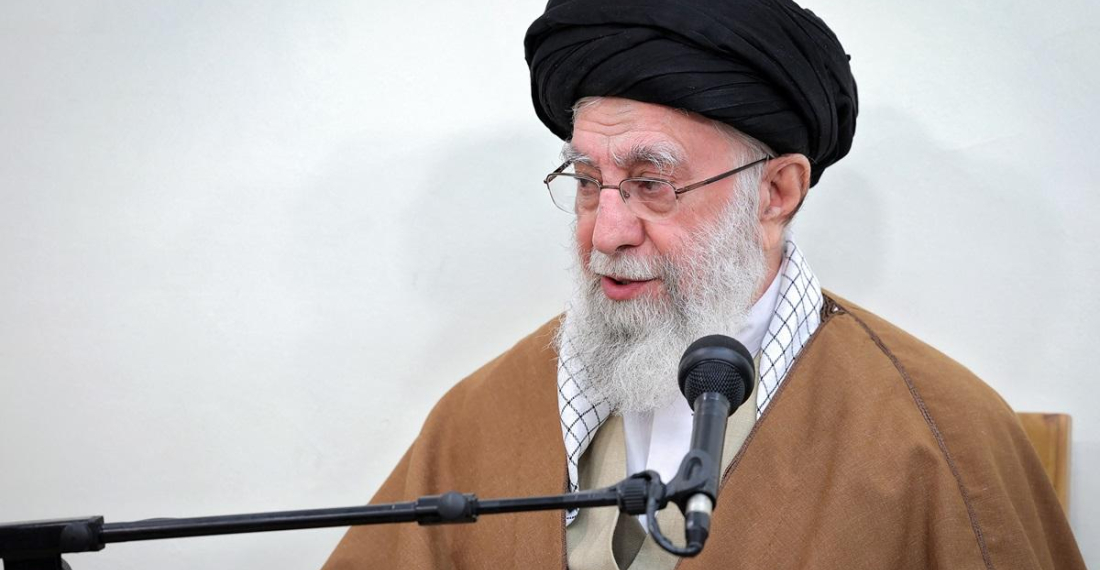The United States and Iran are set to resume high-stakes talks on Saturday 19 April on Tehran's nuclear programme, a week after an initial round of discussions that both sides described as "constructive". Iranian Foreign Minister Abbas Araghchi and US Middle East envoy Steve Witkoff will hold the Oman-mediated talks in Rome. They come one week after the two sides held what Iran called indirect talks in Muscat. Those were the first talks at such a high level between the foes since US President Donald Trump abandoned a landmark nuclear accord in 2018.
Western countries including the United States have long accused Iran of seeking to acquire nuclear weapons, an allegation Tehran has consistently denied, insisting that its programme is for peaceful civilian purposes. Tehran and Washington have had no diplomatic relations since shortly after Iran's 1979 Islamic revolution. Following his return to office in January, Trump revived his "maximum pressure" campaign of sanctions against Iran.
In March he sent a letter to Iran's supreme leader Ayatollah Ali Khamenei urging renewed nuclear talks while warning of military action if diplomacy fails. "I'm not in a rush" to use the military option, Trump said on Thursday. "I think Iran wants to talk."
On Friday Araghchi said Iran "observed a degree of seriousness" on the US side during the first round but questioned their intentions. "Although we have serious doubts about the intentions and motivations of the American side, in any case we will participate in tomorrow's (Saturday) negotiations," he said at a press conference in Moscow.
In an interview published Wednesday by French newspaper Le Monde, the United Nations nuclear watchdog chief Rafael Grossi said Iran was "not far" from possessing a nuclear bomb.
During Trump's first term, Washington withdrew from the 2015 accord between Tehran and world powers which offered Iran relief from international sanctions in return for curbs on its nuclear programme. Tehran complied with the agreement for a year after Trump's pullout before scaling back its compliance.
Araghchi was a negotiator of the 2015 deal. His counterpart in Rome, Witkoff, is a real estate magnate Trump has also tasked with talks on Ukraine. Iran currently enriches uranium up to 60 percent, far above the 3.67 limit in the deal but still below the 90 percent threshold required for weapons-grade material.
On Friday, US Secretary of State Marco Rubio urged European countries to decide on whether to trigger the "snapback" mechanism under the 2015 agreement, which would automatically reinstate UN sanctions on Iran over its non-compliance. The option to trigger the mechanism expires in October this year.
Iran has previously warned it could withdraw from the nuclear Non-Proliferation Treaty if the mechanism were triggered. Grossi, who held talks with Iranian officials during a visit to Tehran this week, said the US and Iran were "at a very crucial stage" in the talks and "don't have much time" to secure a deal.
Iranian officials have insisted that the talks only focus on its nuclear programme and lifting of sanctions. Araghchi said a deal with the US was "likely" if Washington refrained from "making unreasonable and unrealistic demands," without elaborating. Analysts had said the US would push to include discussions over Iran's ballistic missile programme as well as Tehran's support for militants in the Middle East.
Araghchi said Iran's right to enrich uranium was "non-negotiable", after Witkoff called for its complete halt. Witkoff had previously demanded only that Iran return to the ceiling set by the 2015 deal. On Tuesday, Iran's Islamic Revolutionary Guard Corps said the country's military capabilities were off limits in the discussions. Iran's regional influence and its missile capabilities were among its "red lines" in the talks, the official IRNA news agency reported.
On Friday US ally Israel affirmed its unwavering commitment to preventing Iran from obtaining nuclear weapons, saying it had a "clear course of action" to prevent this. Khamenei on Tuesday said Iranians should not pin hopes on progress in the negotiations which "may or may not yield results."






